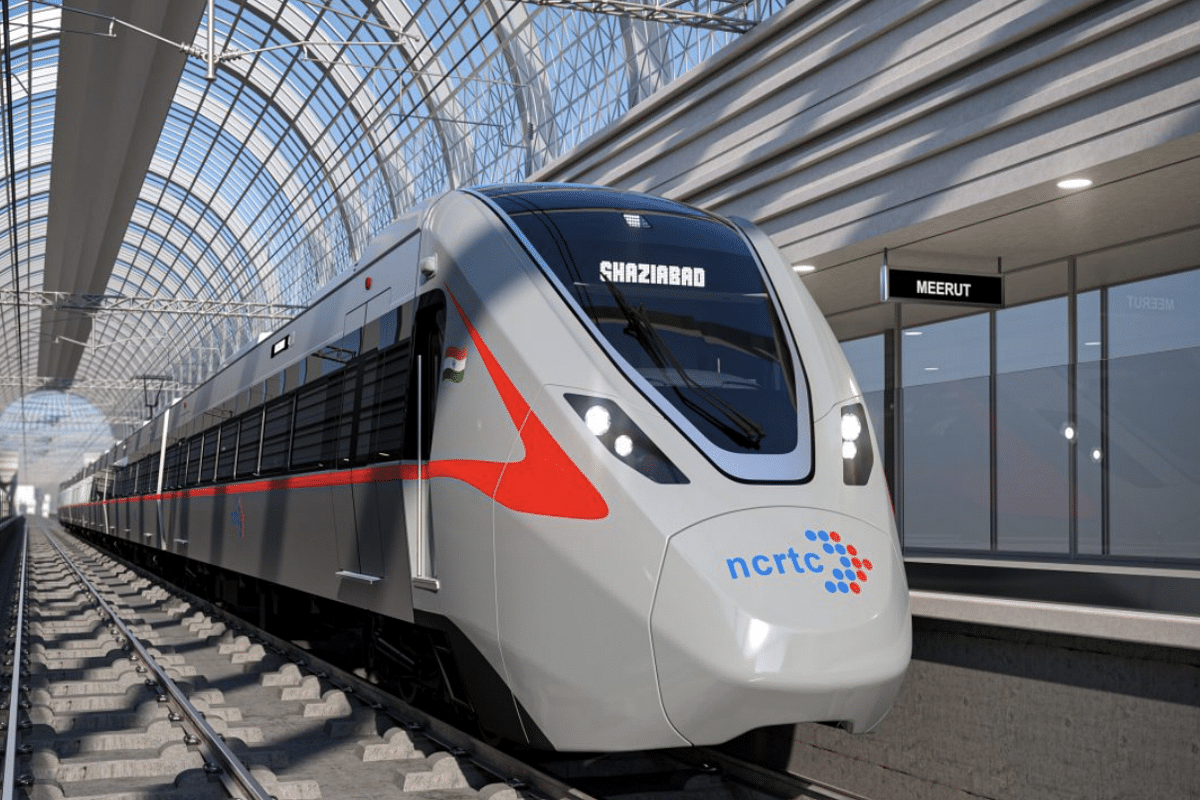Infrastructure
Centre Inks Pact With ADB For $250 Million Loan For Delhi-Meerut Regional Rapid Transit System

Delhi-Meerut Regional Rapid Transit System. (NCRTC)
The Asian Development Bank (ADB) has approved 37 billion Japanese yen ($250 million) loan to support construction of the 82-kilometre Delhi-Meerut Regional Rapid Transit System (RRTS) corridor, a first of its kind in India.
The pact was signed by Juhi Mukherjee, Joint Secretary in the Ministry of Finance and Hoe Yun Jeong, deputy country director at ADB.
Earlier, ADB had approved a $1,049 million multi-tranche financing facility (MFF) for the project in 2020 to support construction of Delhi-Meerut RRTS, with financing being implemented in four tranches between August 2020 and May 2025.
The RRTS — a brainchild of the National Capital Region Planning Board (NCRPB) — was first mooted in 2012 to decongest the roads and bring down pollution in Delhi, while ensuring high-speed connectivity between the capital and its satellite towns Panipat in Haryana, Meerut in Uttar Pradesh and Alwar in Rajasthan,
The 82-km-long Delhi-Meerut corridor is one of the three priority corridors planned for implementation in the the National Capital Region (NCR) in the first phase.
Delhi accounts for 37 per cent of the population of the National Capital Region. The transit system project aims to help decongest the city and improve regional connectivity by establishing transit options through the densely populated sections of the NCR connecting Delhi to Meerut in the state of Uttar Pradesh.
The project is jointly funded by multilateral institutions, and by the Centre and state governments, with the states contributing in proportion to infrastructure being developed in their territory.
For example, the Rs 31,632 crore Delhi-Meerut RRTS Corridor involves a 20 per cent contribution by the Centre, while Delhi and Uttar Pradesh are contributing 3.5 per cent and 16.5 per cent respectively.
Passing through the populated sections of the NCR, the 82-km corridor will provide fast, safe, and high-capacity commuter transit services, expanding economic and employment opportunities in the region by cutting travel time from 3-4 hours to about 1 hour.
Support Swarajya's 50 Ground Reports Project & Sponsor A Story
Every general election Swarajya does a 50 ground reports project.
Aimed only at serious readers and those who appreciate the nuances of political undercurrents, the project provides a sense of India's electoral landscape. As you know, these reports are produced after considerable investment of travel, time and effort on the ground.
This time too we've kicked off the project in style and have covered over 30 constituencies already. If you're someone who appreciates such work and have enjoyed our coverage please consider sponsoring a ground report for just Rs 2999 to Rs 19,999 - it goes a long way in helping us produce more quality reportage.
You can also back this project by becoming a subscriber for as little as Rs 999 - so do click on this links and choose a plan that suits you and back us.
Click below to contribute.
Latest